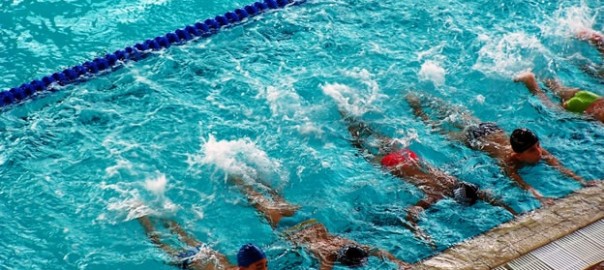I was recently discussing homeschooling with a couple of my oldest children, when one commented that he doesn’t see our younger boys doing as much academic work as he remembers doing at that age.
I would have to agree that I’m more relaxed and less structured at this point then I was in the earlier years. I have more trust in the developmental process as well as each child’s inherent desire to learn, and don’t feel I have to make learning happen.
But let me not get into a philosophical discourse! While my older kids had to do 30 – 60 minutes of reading daily, the younger children don’t. The reason for that is that those who are good readers do more than that without it being requested, and those that aren’t good readers can’t do that much without a lot of stress and anxiety.
For one child in particular, reading hasn’t come easily. I’ve been pretty patient about waiting for readiness but at the same time, felt that more was needed than patience. While I didn’t have an official assessment done, I was pretty convinced that dyslexia was the issue.
Children with dyslexia tend to be very talented in a number of areas. When I read the profile of a child with dyslexia, I was taken aback at how obviously it was describing one particular son. A child who is good at so many things – the athlete, the engineer, the artist. Ds is physically dexterous/athletic, bright, creative, great at math, building, spatial skills – good at just about everything. Except reading.
Children with dyslexia have brains that work a bit differently. Doing more and more reading drills (sometimes referred to as ‘drill and kill’) doesn’t help because it’s only looking at the symptoms. He doesn’t need more of the same. If it was working, it would work without endless repetitions. What he needs is a different approach.
Strengthening the brain connections between the right and left brain is critical because the child with dyslexia tends to do most of his processing on the right side of the brain, but reading is a left brain activity.
Here are some things I’ve been doing to build a strong foundation for reading success:
- I bought several sets of activity books from Dyslexia Games and the boys do two pages each day. I really liked the idea behind these and it made a lot of sense to me. Basically, it turns reading into a right brain activity.
- Sequential processing activities – each of the younger boys does these for ten minutes daily. This builds their auditory processing skills and increases their digit spans, which means that it increases the amount of information they can hold on to. (To read English, you need to be processing at a digit span of 5 – 6. It’s extremely difficult and time consuming to try to teach reading to a child who isn’t processing in this range. ) Right now I’m focused mostly on auditory processing but also do visual processing activities with them.
- Brain Gym exercises – I would love to say that I start every day with a five minute routine but that would be a lie. 🙂 But I do try to include these regularly. Whoever is in the house does them together.
- Swimming – I can’t help it, even when my kids do activities like these I’m thinking about the importance of the cross patterning motions and how it benefits the brain! The boys are all taking swimming lessons and I just bought an above ground pool to give them regular swimming practice – swimming is a very therapeutic activity that builds right/left brain connections.
- Audio books – my boys listen to a lot of read alouds and audio recordings of books, usually daily. This strengthens their auditory processing and also is a pathway for them to input information through other channels than reading. (Their comprehension as a result of this is excellent and they can understand more complex plots and storylines. We’re currently reading Robinson Crusoe, which I thought was way too verbose and long winded for them to enjoy. I was wrong. They were hooked after one chapter and begged me to continue!)
- Crawling – crawling on hands and knees is another wonderful cross patterning activity. I try to encourage the boys to do this by integrating it into a game but sometimes I’ll ask them to go around the garden perimeter a few times. If two of them do it at a time they race and it’s more fun. I bought the younger three boys sports knee pads to make this more comfortable and enjoyable for them.
- I recently purchased a five volume set of Hebrew readers from Torah4Children based on the Orton-Gillingham multi-sensory approach. I haven’t yet used them so I can’t give feedback other than to say that they look good.
- I also recently purchased a couple of English readers based on the Orton-Gillingham method. Blast Off To Reading is for beginning readers, and A Workbook For Dylexics is for teens and up. We decided to put English reading aside for the time being since we want to put more focus on Hebrew reading. Living in Israel, Hebrew is more critical for the boys to read well at this point; we’ll come back to English once the Hebrew reading is solid.
- Flashcards – my husband has his own ideas that he makes up and then implements that are very effective with our kids. He did lots of flashing aleph bais letters until the recognition was automatic. Then he followed these with single words on an index card. His thought was that it gives more of a tangible feeling of success to have a pile of cards that you read correctly in your hand, and then can review the ones that were missed.
- Notes on the fridge – again, this is my husband’s idea! He writes simple notes and leaves them on the fridge to encourage reading success.
So you might come to my home and see my kids starting their day with a swim, then do some art pages and run off to listen to read alouds and conclude that I don’t have any structure for my kids and I’m not actively facilitating their learning. But hopefully now you can see a little bit behind why I do what I do.
I want to stress that I feel it’s really important for a child who is challenged in some way to have the opportunity to feel successful and develop a positive identity – not to see himself as the ‘kid who can’t read’. Reading is just one skill and being a good reader doesn’t make you successful in life. In the end, it’s the person who feels competent and good about himself who is best able to tackle the challenges that will come his way.
Right now we’re feeling very encouraged by the progress we’ve seen since we began implementing the above activities. It’s quite exciting to see a child who has always struggled suddenly be able to read words around them (in English and Hebrew) that were a mystery before. I’m not going to predict how long it will take to become a fluent reader and it’s okay if it takes time. We’re on a good path and learning is happening!
Avivah



